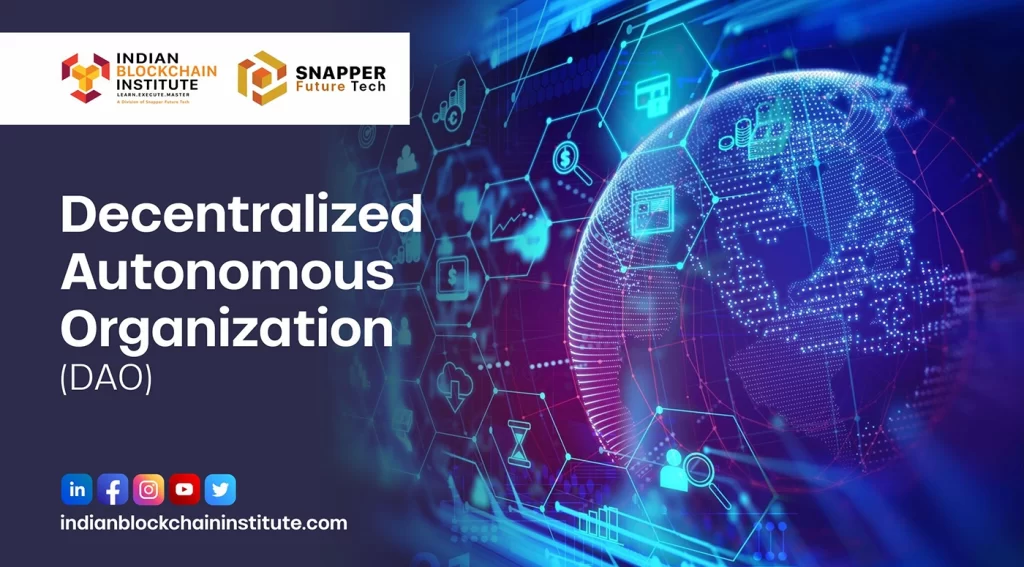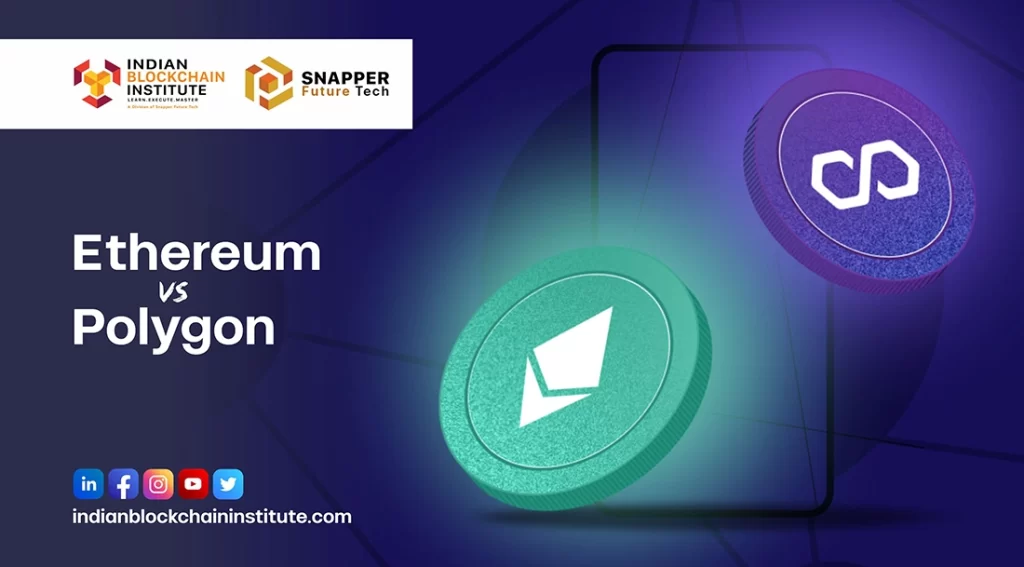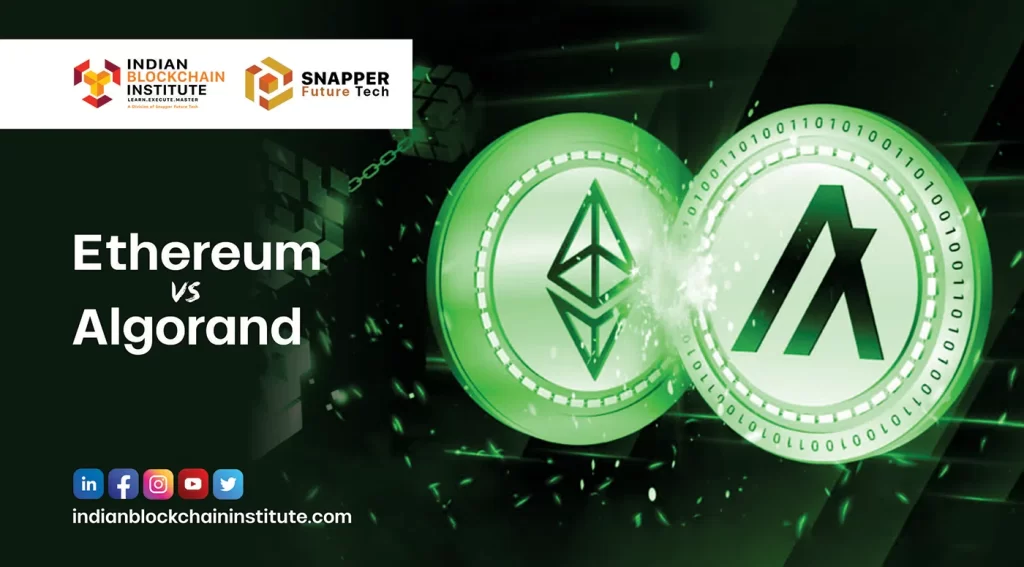What Is a DAO?
A DAO is a decentralized organization that operates on blockchain technology and is governed by a native crypto token. It uses smart contracts to coordinate resources and decision-making among token holders, creating a transparent and accountable platform. DAOs have the potential to revolutionize various industries and reshape the way communities and companies are organized and managed. However, there are challenges to address, such as ensuring the security of the underlying blockchain infrastructure and addressing legal and regulatory considerations.
How does a DAO Work?
DAOs operate through smart contracts that run on the Ethereum blockchain. These smart contracts can automate various company tasks, such as disbursing funds or making investment decisions and are only executed when certain conditions are met. This creates a transparent and accountable system of organization that is based on the principles of decentralization and democracy.
Some proposed characteristics of a DAO include:
No hierarchy: Instead of relying on a central authority or leaders, decisions are made collectively by stakeholders.
Transparent: The open-source code of a DAO allows anyone to review and inspect it. Furthermore, the transparency of the blockchain enables anyone to track the history of decisions made within the DAO.
Open access: DAO tokens allow decision-making power to anyone with internet access, promoting inclusivity and democracy in the organization.
Democratic changes: DAO rules can be modified by voting on new proposals submitted by investors.
Recruiting: A potential advantage of a DAO is the ability to hire outside talent for human-only tasks, such as a repairman for a driverless car, based on sensor reports.
How are DAOs Being Used?
DAOs are disrupting various industries including venture capitalism, insurance, real estate, music, fashion, and Hollywood, among others, by providing a level playing field and programmable utility that allows for limitless potential as communal counterparts to entrepreneurial pursuits. Their purpose is to ensure the best use of resources as the community sees fit, promoting a more wholesome approach to business through decentralization.
The benefits of DAOs
Some ways in which DAOs can improve financial processes and decision-making include automating financial processes to speed up fundraising for new ideas, ensuring democratic voting rights for all members, simplifying the distribution of returns and gains, and providing greater transparency and clarity around the rules for allocating investments and making decisions. However, it’s important to also be aware of the potential risks associated with DAOs, such as the difficulty of changing smart contracts and the possibility of hacking or transaction fees.
Downsides of DAOs
Automated smart contracts are challenging to modify once an issue is detected, and hackers may exploit loopholes to legitimately divert funds to the detriment of shareholders. In early DAOs, participants could incur high transaction fees of up to $100 per transaction. These factors represent potential limitations of DAOs that should be considered before investing in or establishing one.
Why do we need DAOs?
DAOs have several advantages over traditional organizations as they are internet-native. One of the significant advantages is that only the code needs to be trusted, unlike traditional organizations that require a lot of trust in the people behind them, especially on behalf of investors. The code is publicly available and can be extensively tested before launch, and every action taken by a DAO is transparent and verifiable, approved by the community.DAOs have no hierarchical structure, yet they can accomplish tasks and grow while being controlled by stakeholders via their native token. Any stakeholder can suggest innovative ideas that the entire group will consider and improve upon. Disputes are often resolved through the voting system in line with the pre-written rules in the smart contract.Moreover, by pooling funds, DAOs allow investors to invest in early-stage startups and decentralized projects while sharing the risk and profits that may come out of them. DAOs offer a more democratic and transparent approach to conducting business, creating limitless potential as communal counterparts to entrepreneurial pursuits.
What are some examples of DAO?
DAOs can be formed for various purposes such as raising funds for a charity or investing in a project, where participants pay a certain amount of cryptocurrency and receive tokens from the DAO according to a predetermined schedule written into a smart contract. Bitcoin can also be considered a DAO, where people buy and sell the cryptocurrency according to set terms, and all transactions are recorded on the blockchain. Most DAOs operate on the Ethereum network, which describes them as collectively owned and managed businesses with built-in treasuries that can only be accessed with group approval. Examples of DAOs include Constitution DAO, which raised $47 million to purchase a U.S. Constitution but failed to win the auction, and Links DAO, which raised over $10.5 million by selling NFT memberships for a crowdfunded golf course. The NFT owners have a stake in the club and the right to participate in decisions about its development.
The Future of DAOs
DAOs are expected to play a significant role in the web3 ecosystem. To understand their relationship, we can look at the history of the web. In web 1.0, users couldn’t interact with content, while web 2.0 enabled users to read and write, interact with content, and contribute to it. Web3 adds the concept of ownership, allowing users to have control over their data and interactions. DAOs provide an organizational structure for aligning people around a shared goal in web3. The governance token model enables users to own a portion of the organization they are interacting with, allowing them to participate in decision-making and have a say in how the organization operates. This ownership and participation model is a crucial part of the web3 vision, and DAOs are an essential component of it.
Conclusion
In conclusion, DAOs have emerged as a promising new form of organization that has the potential to transform online transactions and decentralized networks. With their self-governance and autonomy features, DAOs are gaining popularity among users who are interested in owning a piece of the company they interact with. However, experts caution that investing in DAOs and cryptocurrencies involves high risk due to the volatile crypto market. It is crucial for DAO projects to have a robust cost structure and strong partnerships in place to succeed. Organizations can consider incorporating a unique decentralized and autonomous DAO platform as part of their broader Web3 strategy, provided they have a compelling business concept that provides real value to the DAO community.




